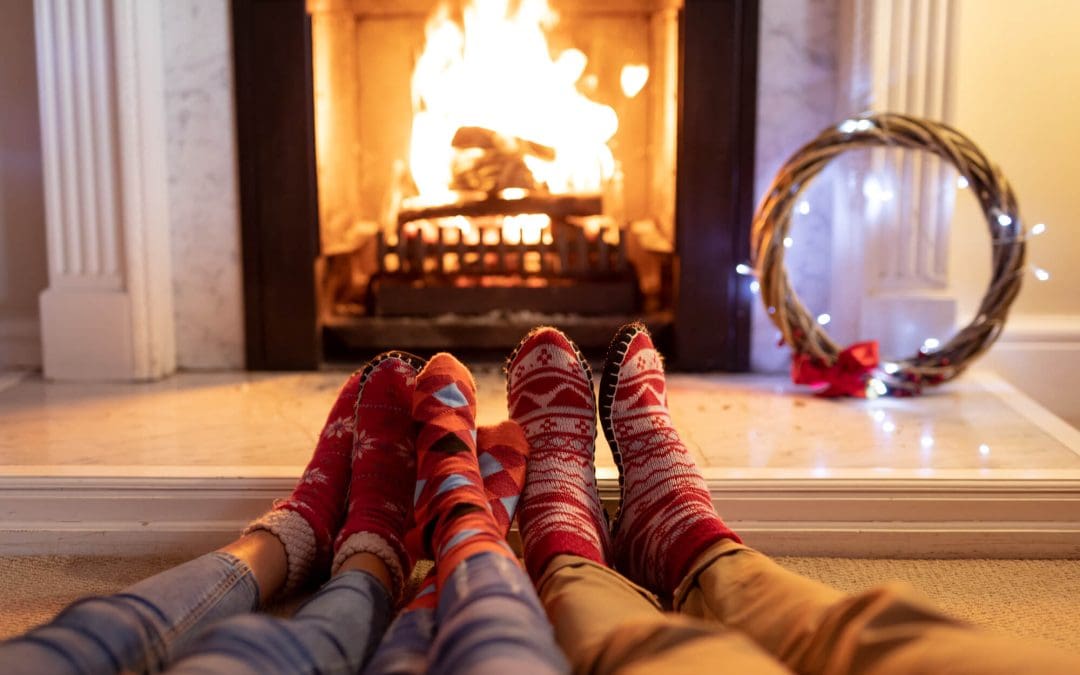The holiday season is a time for joy, celebrations, and gatherings with loved ones. However, it’s also a time when the risk of home fires increases significantly. Be it festive decorations, candles, cooking, or even the cozy warmth of a fireplace, holiday fire hazards are real. Taking the necessary precautions will keep your holiday season is safe as well as enjoyable. Here are some essential tips for holiday fire safety.
Inspect and Maintain Holiday Lights for Holiday Fire Safety
Holiday lights are a staple of the season, both indoors and out. However, damaged or faulty lights can become a fire hazard. Before you hang lights, inspect them carefully. Look for frayed wires, broken bulbs, or exposed electrical components. If you notice damage, replace the lights rather than trying to repair them.
When decorating your home, use only lights that are approved by a recognized safety testing laboratory like UL or ETL. These lights meet safety standards and reduce the risk of electrical fires. Remember to avoid overloading electrical outlets, and always use surge protectors. Unplug lights before going to bed or leaving the house to prevent potential fires.
Choose Fire-Resistant Decorations
Not all holiday decorations are created equal when it comes to fire safety. If you’re putting up an artificial Christmas tree, make sure it’s labeled as fire-resistant. While this doesn’t make it fireproof, it does mean that the tree will resist catching fire and will burn more slowly if it does.
If you prefer a real tree, keep it hydrated throughout the season. Dry trees are extremely flammable, so water your tree daily to keep it from becoming a fire hazard. When placing your tree, make sure it is at least three feet away from any heat source, including fireplaces, radiators, and space heaters.
Choose decorations that are non-flammable or flame-retardant. Keep decorations away from open flames, such as candles or a fireplace, to further reduce the risk of fire.
Be Cautious with Fireplaces and Space Heaters
A warm, crackling fire is perfect for setting a cozy holiday mood, but fireplaces can be dangerous if not used properly. Before lighting the first fire of the season, make sure to have your chimney cleaned and inspected by a professional. Creosote buildup can cause chimney fires, which can spread to the rest of your home.
Always use a fire screen to keep embers and sparks contained within the fireplace. When using space heaters, keep them away from flammable objects and never leave them unattended.
After enjoying a fire, make sure it is completely extinguished before going to bed or leaving the house. Ashes can stay hot for hours, so place them in a metal container away from your home and other flammable materials.
Develop a Family Fire Safety Plan
Even with all precautions in place, accidents happen. That’s why having a family fire safety plan is crucial. Discuss fire safety with your household and develop an escape plan. Identify two exits from each room and establish a meeting place outside the home where everyone can gather after evacuating.
Practice your fire safety plan regularly, especially with young children, so everyone knows what to do in the event of a fire. Being prepared can make all the difference in keeping your family safe.
While the holidays are a time to relax and enjoy the company of loved ones, taking fire safety precautions should be a top priority. Remember, a few small steps go a long way in preventing holiday fire hazards and protecting your home and family.
Holiday Fire Safety FAQs
Can I burn holiday wrapping paper in my fireplace?
It may be tempting to burn wrapping paper in the fireplace, but this is highly discouraged. Wrapping paper burns very quickly and can cause large, hot flames that may get out of control. Some types of wrapping paper, especially those with metallic elements or glitter, release toxic chemicals when burned. Stick to using your fireplace for seasoned wood only, and dispose of wrapping paper through recycling or regular waste collection services.
How can I tell if my holiday lights are causing an electrical overload?
If you notice flickering lights, tripped circuit breakers, or a burning smell near your outlets, these could be signs of an electrical overload. Another indicator is if your lights feel unusually warm to the touch. To avoid this, spread out your electrical load and only use lights that are specifically rated for your electrical system. Upgrading to LED lights will also reduce the risk of overload since they use less electricity than incandescent bulbs.
Is it safe to leave outdoor holiday lights on in snowy or rainy weather?
Most outdoor holiday lights are designed to withstand wet conditions, but you still need to take precautions. Make sure your lights are labeled for outdoor use and that all electrical connections, including extension cords, are weatherproof. Avoid placing plugs and connectors directly on the ground where they may be exposed to standing water or snow. It’s also a good idea to inspect your lights regularly to make sure they’re functioning safely during harsh weather conditions.
Rhode Island Real Estate Inspection Services serves all of Rhode Island with home inspections. Contact us to schedule an appointment.

